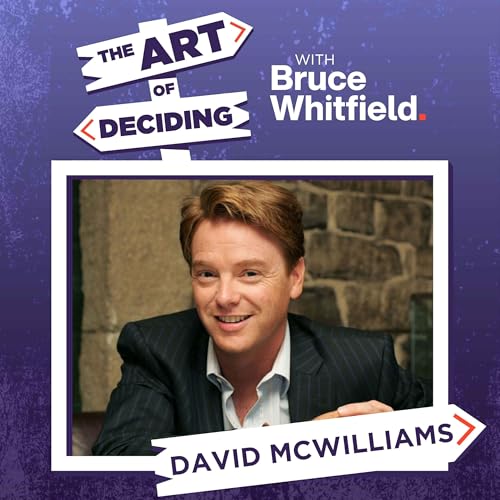Would you take a pay cut for the career you want? Would you even take two? And what if the world's default position is actually chaos? How do we make decisions then? Arjun Raghavan is CEO of Partners Capital, making million-dollar decisions every day. He took some big decisions to get himself on the career path he wanted and to achieve his ambitions. Find out how he makes his choices in the last episode before our summer or winter break (depending on the hemisphere you're in!).
00:00 – The Asymmetry of Outcomes
Raghavan introduces his decision-making philosophy: optionality, assessing upside vs. downside, and treating choices like investment bets.
02:10 – From Engineering to Consulting
Early career pivots from engineering to Andersen Consulting (now Accenture), and eventually, an MBA at INSEAD.
04:50 – A 60% Pay Cut and Ostrich Farms
A bold detour into nonprofit consulting in Namibia through Accenture Development Partnerships, with key lessons on timing and impact.
08:15 – The Leap into Finance
Joining a small hedge fund led by ex-Goldman Sachs professionals, learning the hard truths of investment careers, and taking a second massive pay cut.
11:30 – Finding the Right Fit at Partners Capital
Discovering a multifaceted, client-facing, global investing role at Partners Capital that aligned with his love for variety and challenge.
14:20 – Managing Billions Amid Global Chaos
Reflecting on how Partners Capital operates with $60–65 billion AUM across 8 global offices—navigating geopolitical, economic, and market volatility.
17:00 – Annie Duke and Decision-Making Philosophy
Drawing from Thinking in Bets by Annie Duke to stress separating decision quality from outcomes; investing is a long-term, probability-based game.
20:15 – Human Behaviour, Loss Aversion, and Clients
How emotional utility shapes investment decisions, and why sometimes logic alone doesn’t serve client needs.
23:00 – Barack Obama and Sleeping Well
Quoting Obama on making the best decision with available data and learning to sleep peacefully with uncertainty.
References
- Annie Duke – Thinking in Bets: A guide to probabilistic thinking and decision-making in uncertainty.
- Hans Rosling – Factfulness: A data-based antidote to fear and pessimism.
- David McWilliams (economist): Featured in earlier episodes discussing how markets discipline populists.
- Barack Obama (on decision-making): Knowing you made the best call with the information available brings peace of mind.
- "Where Are the Customers’ Yachts?" by Fred Schwed Jr.: A classic critique of Wall Street’s appearance vs. reality.
Discover more about Bruce Whitfield here - https://www.brucewhitfield.com/
The Art of Deciding is produced by Podcart - https://www.podcart.co.uk/
Series Producer: Jayne Morgan
Hosted on Acast. See acast.com/privacy for more information.
 Jun 25 202526 m
Jun 25 202526 m 26 m
26 m May 28 202516 m
May 28 202516 m 25 m
25 m Apr 30 202531 m
Apr 30 202531 m Apr 17 202530 m
Apr 17 202530 m 28 m
28 m Mar 20 202527 m
Mar 20 202527 m

